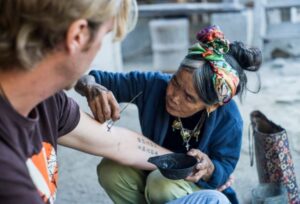
In the realms of popular culture, language often serves as a vessel for expressing emotions, ideologies, and even revolutions. Among the myriad of phrases that have permeated various linguistic landscapes, “Viva La” stands out as a potent expression, evoking images of fervor, rebellion, and celebration. Originating from Spanish, “Viva La” translates to “long live” or “hail to,” depending on the context. However, its significance transcends mere translation; it embodies a spirit of resilience, defiance, and vitality. This article delves into the multifaceted meanings of “Viva La,” exploring its historical roots, its cultural implications, and its enduring relevance in contemporary discourse.
Table of Contents
ToggleA Historical Overview:
The genesis of “Viva La” can be traced back to revolutionary movements, particularly in Latin America and Europe. During the 19th and 20th centuries, as countries grappled with oppressive regimes and fought for independence, this phrase became a rallying cry for liberation. In Mexico, for instance, “Viva La Revolución” echoed through the streets as people sought to overthrow colonial rule. Similarly, in Spain, during the Spanish Civil War, combatants on both sides shouted “¡Viva la República!” or “Long live the Republic!” as they battled for political ideologies.
Throughout history, “Viva La” has been associated with defiance against tyranny, whether it be monarchies, dictatorships, or foreign occupations. It embodies the spirit of resistance, urging individuals to stand up against injustice and fight for freedom. This sentiment has resonated across generations and continents, symbolizing the enduring human quest for dignity and self-determination.
Cultural Significance:
Beyond its historical connotations, “Viva La” has permeated various cultural spheres, from music to literature to cinema. In the realm of music, iconic bands like Rage Against the Machine popularized the phrase in their songs, using it as a call to arms against social injustices. Likewise, artists such as Manu Chao incorporated “Viva La” into their lyrics, infusing their music with political fervor and cultural identity.
In literature, authors have utilized “Viva La” to convey themes of rebellion and solidarity. From Ernest Hemingway’s portrayal of the Spanish Civil War in “For Whom the Bell Tolls” to Gabriel García Márquez’s exploration of Latin American revolutions in “The Autumn of the Patriarch,” this phrase has served as a literary motif, capturing the spirit of resistance against oppression.
In cinema, filmmakers have employed “Viva La” to evoke emotions of defiance and hope. From Che Guevara’s iconic declaration, “¡Hasta la victoria siempre!” (“Until victory, always!”) in “The Motorcycle Diaries” to the revolutionary chants in “Viva Zapata!” starring Marlon Brando, movies have immortalized the phrase as a symbol of resistance and revolution.
Contemporary Relevance:
In today’s global landscape, “Viva La” continues to resonate with individuals and communities grappling with social, political, and economic challenges. From protests against authoritarian regimes to movements advocating for environmental justice, this phrase serves as a rallying cry for change and empowerment.
In the digital age, “Viva La” has found new life on social media platforms, where hashtags like #VivaLaRevolución or #VivaLaResistance amplify voices of dissent and solidarity. Whether it’s activists advocating for human rights or environmentalists calling for climate action, this phrase unites people under a common banner of justice and liberation.
Moreover, “Viva La” has transcended linguistic barriers, becoming a symbol of global solidarity. In an interconnected world, where injustices in one corner reverberate across continents, this phrase serves as a reminder of our shared humanity and collective struggle for a better future.
Conclusion:
“Viva La” encapsulates the essence of resilience, defiance, and hope. From its origins in revolutionary movements to its resonance in contemporary discourse, this phrase has evolved into a powerful symbol of liberation and empowerment. Whether shouted in the streets during protests or whispered in the corridors of power, “Viva La” embodies the timeless pursuit of freedom and justice. As we navigate the complexities of our world, may we draw inspiration from the spirit of “Viva La” and continue to strive for a more equitable and just society. Long live the spirit of resistance. Viva La!





